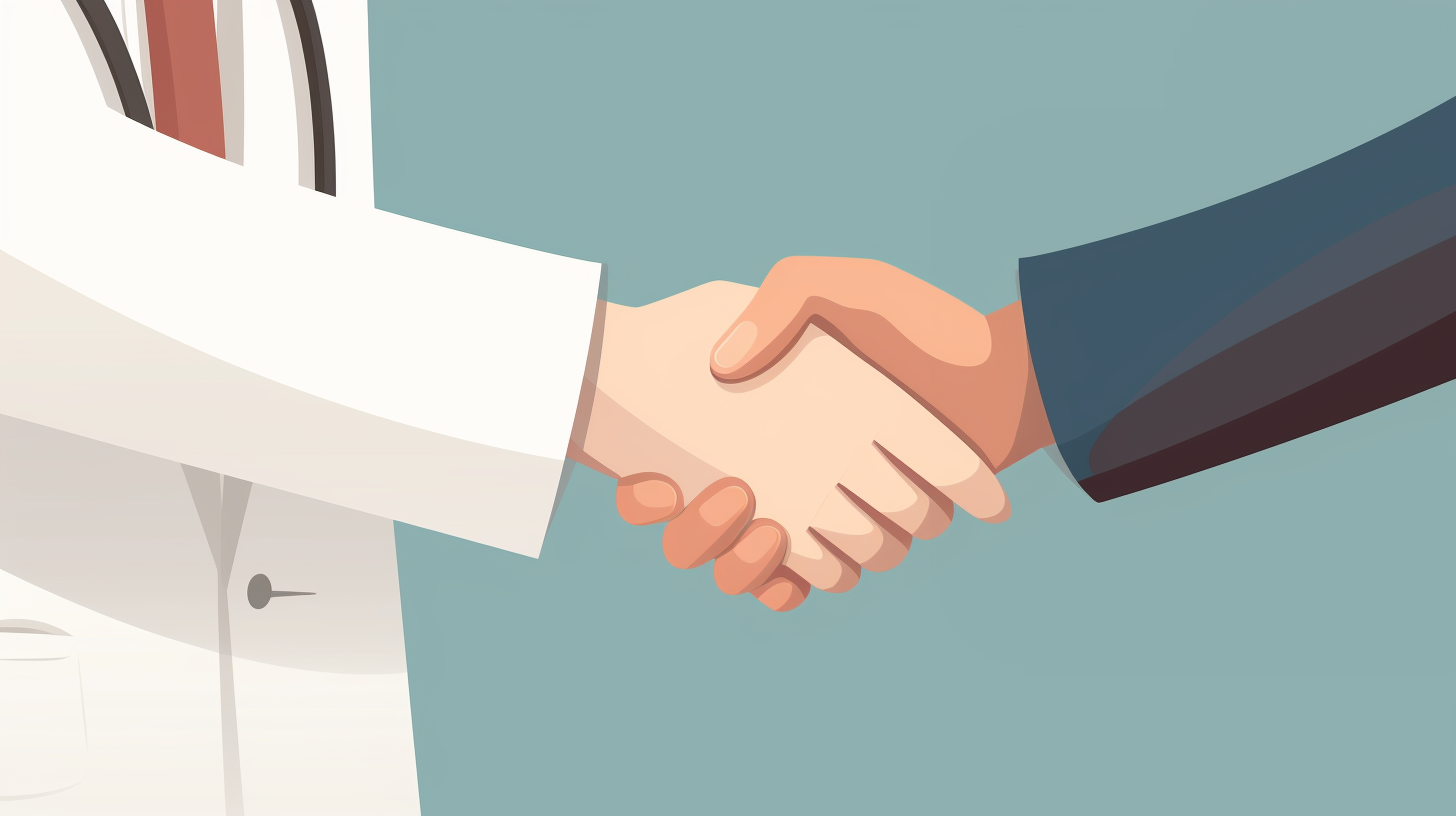How to Handle Overwhelming Medical Debt

Medical debt can often feel like an unshakeable shadow, persistently looming over your everyday peace of mind. There’s this gnawing stress that follows suit, isn’t there? It turns out you’re not alone in the slightest.
Statistics reveal that 80% of folks are wrestling with the harsh realities of medical debt. But fear not. This blog post serves as a beacon amidst uncertainty—it’s brimming with wisdom and effective tactics on how to courageously navigate overwhelming medical debt.
Say, let’s take on this weighty specter together—by the end, I assure you a sigh of relief is already waiting for its cue!
Key Takeaways
- Medical debt is a big problem. But there are ways to tackle it.
- Always check your medical bills for mistakes. Talk with your healthcare provider if you see something wrong.
- If the bill seems too high, try to negotiate a lower price. You can also ask others about this, like credit counselors or patient advocates.
- Make a budget and keep up with all other bills too – not just those related to health care costs!
Understanding Medical Debt
Medical debt happens when you can’t pay your health care costs. This might be for a doctor’s visit, hospital bills, or any other medical cost. It starts small but grows fast. Lots of people have this problem too and it’s not just the uninsured patients who face it.
Even if you have health insurance, you may need to pay out-of-pocket costs.
It’s like opening doors inside a maze: one door leads to another then another and so on until getting out seems hard. Each door could mean more money to spend past what your insurance coverage takes care of.
You get hit with unexpected bills that are beyond your budget plan. Now the expenses turn into debts – we call these overwhelming debt.
Think about how unpaid medical bills become collection agency problems! Add in the stress from job loss or income loss issues and you see why understanding medical debt matters so much.
Big numbers back up how serious this is: 80% of people know about medical debt as per our survey data fact point 1 says (you don’t want to join them!). Around those aged 30-40 years old tend to suffer from it fact point number 2 tells us (but it hits all ages).
People born with genetic predispositions sadly end up living with related conditions as per fact point number 3 shows us (life is truly unfair sometimes!).
In short? Medical Debt isn’t just simple IOUs scribbled on pieces of paper left forgotten at home! It impacts—no–attacks daily human lives directly tying tight knots around vital economic factors forcing financial crisis realities!
The Prevalence of Medical Debt

Medical debt is a big problem for many people. Last year, 80% of people asked knew all about it. They shared that medical bills made their lives hard. You can find talk about this debt not only at home but also on the internet.
In one year, online chat about medical debt grew by 200%.
A lot of those in debt are young, between ages 30 and 40. But kids aren’t safe from it either. There’s proof that more children suffer due to health costs now than before. The number grew by 10% recently.
Some get into debt because of genes too! Roughly six out of ten people go into medical debt if they have certain risky genes.
There’s no doubt: Medical debts catch many folks off guard and weigh them down.
Managing Unpaid Medical Debt
Facing unpaid medical debt can feel daunting – but, fear not. Delving into your bills to inspect for errors, haggling over your bill with the healthcare provider or enlisting outside assistance are all effective ways to take control of your wellbeing and wallet alike.
To dig deeper into these life-changing strategies, keep reading!
Checking for billing errors
“I often double-check my hospital bills. Errors can occur, so it’s good to be alert. Here are some key steps to follow:
- Pull out all your medical bills.
- Read through each line.
- Look for things that seem odd. These might be costs that are too high or services you didn’t get.
- Write down any mistakes you find.
- Contact the health care provider to discuss these errors.
Negotiating your medical bill
Getting a lower price on your medical bill is possible. Here’s how you can do it:
- Ask for a bill break down. This will show you what each service costs.
- Look for mistakes on the list. Many people find errors in their bills.
- Talk to the person who sent you the bill. Tell them if you found a mistake.
- Ask if they can charge less money for some services.
- Be ready to tell them why you can’t pay the full price. They might want to know about how much money you make or if you lost your job.
- A lot of people between 30 and 40 years old are doing this now, according to a study.
- It’s okay if they say “No” at first, keep trying! You have every right to ask again.
- If they still won’t lower the bill, there are others who can help like credit counselors or patient advocates.
- It may look hard now, but once done, it will ease off your burden quite a bit.
Seeking outside help
There are many places to get help with medical debt. Nonprofit credit counseling agencies can give you good advice. They will tell you how to manage your money and pay off your debt.
You might even find a medical bill advocacy group to work with! These groups help cut down large health care costs that make no sense, or seem too high. Government assistance programs are another place where relief comes in handy.
They offer aid based on your income level or if you’re having a financial crisis due to job loss, for example.
How to Ease the Burden of Medical Debt
Bearing the weight of medical debt doesn’t need to be a solitary battle. Engaging with your bills head-on, instead of avoiding them, can remove some strain from the situation. It’s also advisable to contact your healthcare provider directly; they may have cost-sensitive options or payment plans available! A well-thought-out budget could function as a roadmap for managing finances during this tumultuous time.
Don’t neglect regular bills either – remaining current on those payments reduces the chance for future crises. If navigating these waters proves too challenging, consider seeking help from credit counselors—they’re well-versed in devising strategies that ease financial burdens.
Review all your medical bills
Reviewing all your medical bills is a must. Here are some clear steps to do it:
- Get all your bills together. You might find them in a drawer or an email inbox.
- Read the details on each bill. Look at the costs and what service they are for.
- Check the dates. Make sure you got these services on these days.
- Spot any mistakes. Sometimes, a wrong bill is sent by accident.
- Compare your bills with your insurance letters. This way, you can see if there’s a cost that insurance should pay for but hasn’t yet.
- Keep your bills in one place after checking them.
Contact your medical provider

Talking to your medical provider is important. They can explain your health care costs. Make a list of all the amounts you can’t pay and call them. You might get a discount or a payment plan from them.
Be open about your financial crisis with them. Many hospitals have charity care programs to help uninsured patients like you with overwhelming debt. They may also offer an income-based repayment plan that will ease your burden.
Create a budget
Creating a budget is a key step in managing medical debt. Here’s how you can do it:
- Start by looking at your income. Include any job earnings, benefits, and help from others.
- Next, list all your costs. This should cover rent, food, clothes, transport and other bills.
- Don’t forget to add in medical bills. Both old ones and new ones count.
- Now find out how much money you have left after taking away all the costs from the income.
- Use this number to plan for your needs and wants. But pay off debts first before buying what you want.
Maintain your regular bills
Keeping up with your regular bills is a key part of managing medical debt. Here’s how to do it:
- Make sure to pay all your bills on time, every month.
- Cut down on unnecessary costs. Maybe less dining out or fewer movie nights for a while.
- Pay the most important bills first like rent and utilities.
- Go for auto – pay setup if possible. This way, you’ll never miss a deadline.
- In case of financial hardship or job loss, inform your billers right away so they can help you create a plan.
Consult with a credit counselor
You should meet with a credit counselor. This person will help you manage your medical debt. They can show you ways to get control of money problems. Going to a credit counselor for expert advice might be the right thing for you if you feel lost in your financial crisis.
Credit counseling agencies, even non-profit ones, often have programs to teach about good financial planning and budgeting skills. This is important as it may stop new debts from piling up while settling the current unpaid medical bill problems.
Dealing With Medical Debt Collectors
Navigating interactions with medical debt collectors can be a stressful endeavor. Equip yourself by knowing your rights and fully understanding your debt situation. Improve your bargaining skills to negotiate effectively, which paves the way for potential reductions in the amount owed or feasible repayment plans assertively and respectfully.
Knowing your rights
Debt collectors must follow rules. They can’t call you all the time or tell other people about your bills. It’s not right for them to use scary words or threats either. You don’t have to talk to them if you don’t want to.
Ask them to send a letter instead. If they break these rules, tell someone who can help like a lawyer or government office.
Understanding your debt
You own the money, so you must understand it. This is key in settling your medical debt. Get all your bills together first. Look at each bill slowly and track how much you owe total.
It might seem scary but know we have tools to help manage this.
This not only includes bills from hospitals but also from doctors or labs. Even if insurance paid part of it, there could still be a balance that you owe. Sometimes there can be errors on these bills as well, so look out for those mistakes! Learning all the details about what you owe gives power back into your hands.
Learning to negotiate
I can do this. I know how scary it is to talk about big bills with the people who want my money. But you must believe, talking helps a lot! No need for any fancy words or legal terms.
Just ask them straight, “Can we lower this? Can we set up a payment plan?” They see that I am trying and not running away from the debt. This turns out good most of the time. Some even drop part of my bill! Asking first and not fearing them brings less stress for me and makes things easier in handling big medical debts.
Bankruptcy and Medical Debt
I had a hard time handling my medical debt. The hospital bills added up and left me scared. I had to think about bankruptcy. But, this is not a quick fix. It’s a big step with lasting effects on your credit score for ten years or so! Yet, it can wipe out some types of debts like medical bills in many cases.
Around 80% of people are aware that they can file for bankruptcy if their health care costs get too high. This option might seem scary at first but it could be the right move if you’re drowning in debt from hospital stays or expensive treatments.
Bankruptcy though is not something to take lightly as it may lead to new financial issues down the line such as getting loans or jobs becoming more difficult because of how it impacts your credit history.
The Impact of Medical Debt on Your Credit Score
Medical debt can harm your credit score. If you don’t pay your bills, they might be sent to a collection agency. This is bad news for your credit report! It stays there for seven years making it hard for you to get loans or good interest rates in the future.
Paying bills late also hurts your score since payment history affects 35% of it. So, even if your bill is small, not paying on time has big effects.
Having medical debt doesn’t always hurt your score though. Some credit scoring models ignore paid medical collections and those less than six months old. But if they’re unpaid and old, these debts drag down your score lower and lower with each passing day.
Your goal must be keeping them off of your report entirely by working out a payment plan or getting help from aid programs.
Medical Bill Forgiveness

Medical Bill Forgiveness is a real thing. It’s like a gift from your hospital or doctor to you. They say, “Don’t worry about some part of the bill.” Sometimes, they can even say it for the whole amount! But this doesn’t happen for everyone or all the time.
There are rules and ways to make it work.
Firstly, I needed to know if my doctor or hospital offers Medical Bill Forgiveness. Most times, hospitals have charity care programs that help people who can’t pay their bills. And as heard from others, 80% knew about this choice too! Some medical centers also look at age when deciding who gets help – most often those between ages 30 and 40 years.
So guys, don’t be shy! If you need medical care but don’t have money to pay for it – ask your doctor or hospital staff about forgiveness options straight away before any debt piles up against you further causing more stress!
Professional Debt Relief Solutions
One way you can deal with big medical debts is to seek help from a debt relief company. These companies talk with the people you owe money to. They work hard to lower your bills for you.
But, be careful! Some of these firms might not play fair. Do your homework before choosing one. Look at reviews online and see what others are saying about them.
Some other good places that can help in cutting down your medical fees are non-profit groups or charities. They often offer funds or services that aid in paying off large sums of health care costs.
Start acting now! There is no need feel alone when coping with large medical debts. There are professional paths that lend helping hands along the journey.
Conclusion
You can take control of your medical debt. Know what you owe and talk to your healthcare provider. Create a budget, pay regular bills and get help if needed. Don’t let medical debt stress you out!
FAQs
1. What is a good way to handle medical debt?
To handle medical debt, one can turn to debt management methods like negotiating with creditors and collection agencies or through non-profit organizations offering financial assistance.
2. How can I lower my overwhelming medical bills?
You can lower your massive medical bills by negotiating the medical bills, seeking patient advocacy for fair billing practices or opting for hospital financial aid programs.
3. Can you share some information about Debt Consolidation and Medical Bankruptcy?
Yes, both are ways of handling large debts. Debt consolidation helps you combine all debts into a single owed amount which simplifies repayment process while Medical bankruptcy wipes out the full expense though it may impact credit score negatively.
4. What help exists for people who find their health insurance claims did not cover enough of their costs?
People can use options such as Ramsey’s debt reduction strategies, pursuing Health Savings Account (HSA) benefits if eligible or even relying on unemployment aids if applicable. Additionally, they also have access to services such as Financial Counseling and Medical bill auditing that ensure correctness in what they’ve been charged.
5.How do I decide between using my savings versus taking a new loan like acquiring a Medical Credit Card?
Choosing how to pay should ideally consider your ability to repay including factoring in income level and existing expenses before deciding towards getting either professional aid from financial counseling firms or utilizing health savings accounts available resources.






